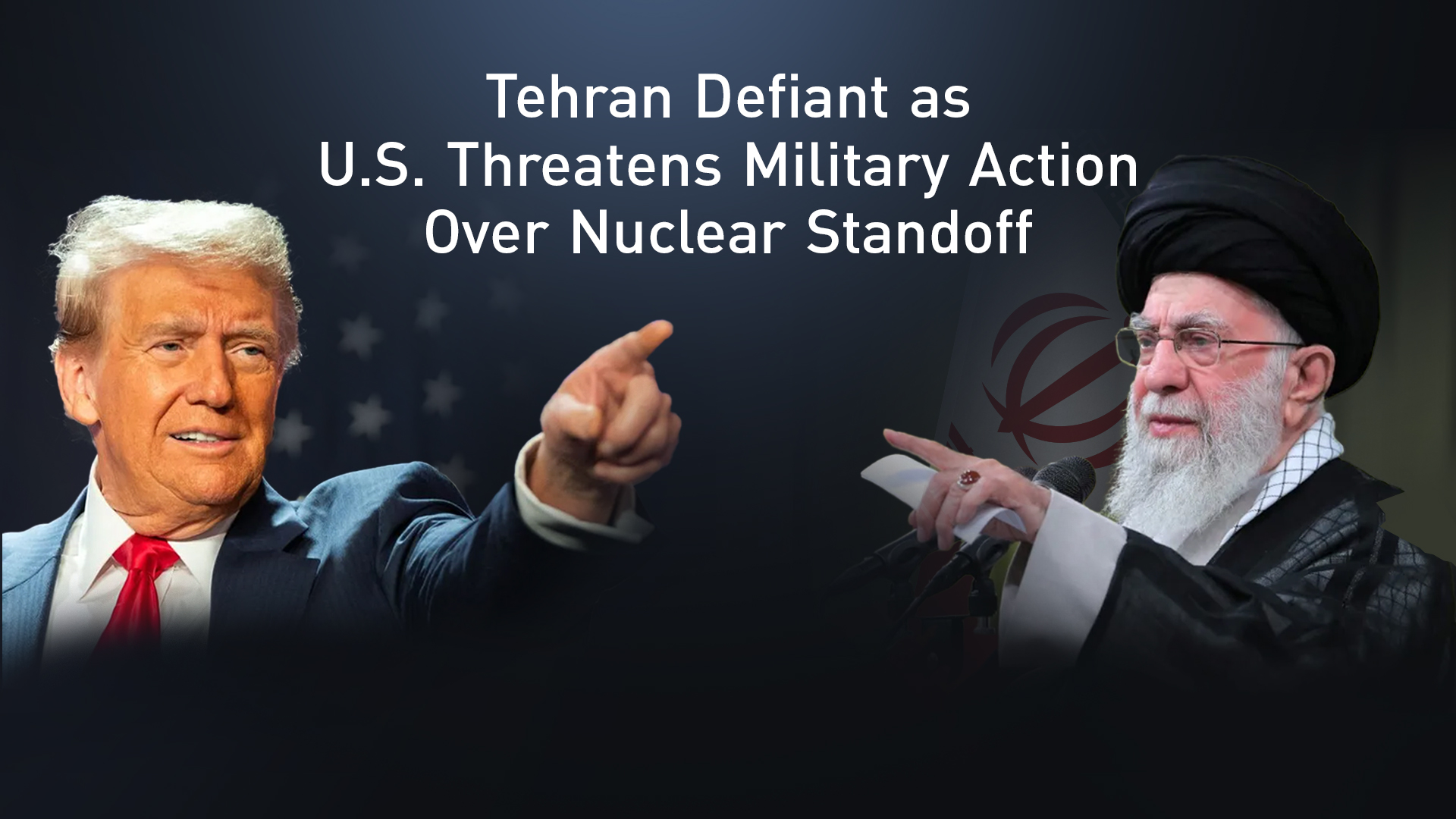Khamenei Defies as Trump Threatens Military Action Over Nuclear Standoff
“Calls for negotiations by bullying powers are not aimed at resolving issues; rather, they are an attempt to impose their demands on the Islamic Republic,” said Khamenei.

ERBIL (Kurdistan24) – Iran’s Supreme Leader Ayatollah Seyyed Ali Khamenei and President Masoud Pezeshkian responded defiantly on Saturday to U.S. President Donald Trump’s latest warning, rejecting any negotiations under coercion and vowing to resist American pressure.
Their remarks, published by the state-owned Islamic Republic News Agency (IRNA), came after U.S. President Donald Trump issued a stern warning that military action remains an option if Iran refuses to return to talks over its nuclear program.
Iran Stands Firm Against U.S. Demands
Speaking at a high-level meeting in Tehran attended by the heads of the three branches of government and senior civil and military officials, Ayatollah Khamenei dismissed U.S. attempts to force negotiations, asserting that such efforts are meant to impose Washington’s will rather than seek genuine resolutions.
“The Islamic Republic of Iran will certainly not accept their expectations,” Khamenei declared. “Calls for negotiations by bullying powers are not aimed at resolving issues; rather, they are an attempt to impose their demands on the Islamic Republic.”
His statement was a direct response to Trump’s statement that he had sent a letter to Khamenei urging the reopening of negotiations. Trump’s February 5 presidential memorandum reactivating the “maximum pressure” campaign—originally launched during his first term—signals a continuation of firm economic and diplomatic tactics.
Nuclear Deal and European Accusations
Khamenei also criticized European signatories to the 2015 nuclear deal, formally known as the Joint Comprehensive Plan of Action (JCPOA), for accusing Iran of non-compliance while failing to uphold their own commitments.
“You say Iran has not fulfilled its nuclear commitments. Well, did you fulfill yours?” he questioned, highlighting Tehran’s frustration over European inaction following Washington’s unilateral withdrawal from the JCPOA in 2018.
Iran delayed for a full year before gradually reducing its nuclear commitments, citing European inaction while continuing to advance its nuclear program. With diplomatic efforts stalled and tensions rising, the risk of a military confrontation remains high.
President Pezeshkian Calls for Unity
Before Khamenei’s remarks, Iran’s newly elected President Masoud Pezeshkian, addressed the gathering, emphasizing national unity as the key to overcoming external threats.
“We are capable of overcoming all problems, but we must join hands, as unity is my first and last word,” Pezeshkian said. “If division arises and we have differences, we will not be able to achieve our goals.”
He warned against internal discord, stressing that “no power can bring down a nation that is united and moving behind one Leader.”
A Looming Military Showdown?
The latest exchange of threats comes against the backdrop of rapidly deteriorating U.S.-Iran relations. The Trump administration has made it clear that it stands ready to take decisive action, including military measures, if Tehran continues to pursue its nuclear program, which the U.S. sees as a significant threat to Middle Eastern security and global stability.
Trump’s past record suggests he is not bluffing. During his first term, he ordered the assassination of Iran’s top military commander, Qassem Soleimani, and oversaw numerous cyber and military operations aimed at weakening Tehran’s influence. His latest warning to Khamenei about a military solution underscores Washington’s impatience with Iran’s nuclear advancements.
The U.S.-Iran nuclear standoff has been a long-standing challenge, with the U.S. taking decisive steps to curb Iran's nuclear ambitions. In 2018, President Trump made the bold decision to withdraw from the JCPOA, citing Iran’s continued non-compliance and its destabilizing actions in the Middle East. This move, though criticized by some, was aimed at holding Iran accountable and pressuring the regime to negotiate a better deal that addresses not just its nuclear program but also its ballistic missile activities and support for terrorist groups.
Since the U.S. reimposed sanctions, Iran’s nuclear progress has been closely monitored, with the Trump administration reiterating its commitment to preventing Iran from obtaining nuclear weapons.
While diplomatic efforts have struggled, the U.S. remains steadfast in its position, willing to use all means necessary, including military action, to protect global security and prevent Iran from becoming a nuclear power.
